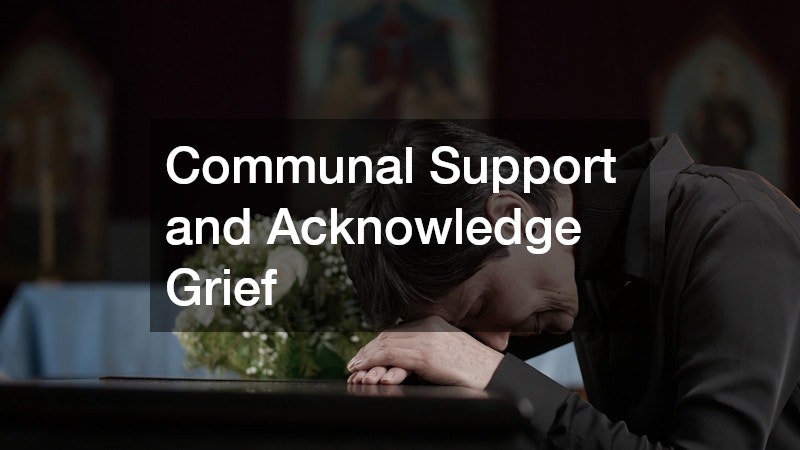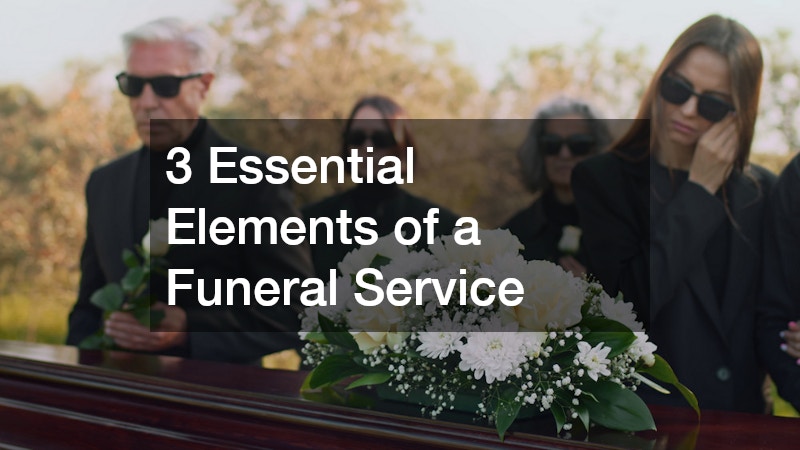A funeral service is more than a farewell; it is a deeply personal event that offers comfort, closure and the opportunity to celebrate a life lived. While each funeral is unique, reflecting individual preferences, cultures and beliefs, there are essential elements that provide structure and meaning to the occasion. These components help mourners express grief, share memories and find support among family and friends.
Understanding the core elements of a funeral service can assist individuals in planning a respectful and heartfelt tribute for their loved ones.
1. Ceremonial Structure and Rituals
A well-considered ceremonial structure sets the tone for the entire service. Whether held in a chapel, a private home or an outdoor setting, the structure provides a sense of order and purpose. Traditional or religious rituals are often central to this element. These may include prayers, hymns, scripture readings or cultural rites that honour the beliefs of the deceased and offer spiritual comfort to attendees.
Even in non-religious ceremonies, rituals hold significance. Lighting candles, placing flowers, reading poetry or playing specific songs can create a moment of reflection and connection. These actions give mourners a way to engage with the service and express their emotions collectively.
The structure of a funeral also includes key roles, such as officiants, pallbearers or speakers, who help guide the proceedings. Having someone lead the ceremony, whether it’s a religious leader, celebrant or family member, ensures the service remains focused and respectful. Carefully chosen words and thoughtful transitions between parts of the ceremony help convey the essence of the person being remembered.
2. Personalised Tributes and Remembrances
No two lives are the same and a meaningful funeral should reflect the individuality of the person it honours. Personalised tributes are a vital part of this process. They give family and friends the chance to share memories, celebrate achievements and convey the personality of the deceased in authentic ways.
Eulogies are one of the most common forms of tribute. Delivered by close family, friends or colleagues, eulogies provide insight into the person’s life, character and legacy. They often include anecdotes, lessons learned and the impact the individual had on those around them. A heartfelt eulogy can bring both laughter and tears, uniting the audience in a shared remembrance.
Visual and audio elements also play a key role. Photo slideshows, video montages or the playing of favourite songs can powerfully convey a person’s story and evoke memories among attendees. Displaying personal items such as awards, artwork or hobbies helps create a tangible sense of presence and gives mourners something to connect with.
3. Communal Support and Acknowledgement of Grief
Funerals are not just about saying goodbye; they are also about supporting one another through a shared loss. This collective expression of grief is an essential element of any funeral service. Coming together in one place, whether physically or virtually, reminds mourners that they are not alone in their sorrow.
Gathering as a group provides emotional strength. It allows people to offer comfort through words, gestures or simply their presence. Friends and extended family can support those most affected by the loss, offering sympathy and assistance during a difficult time. For many, the funeral is the first opportunity to process the reality of the death and begin the journey toward healing.
Following the formal ceremony, receptions or wake gatherings continue this sense of support. Sharing food, stories and time helps ease tension and fosters a space where memories can be exchanged freely. These moments allow people to reflect on the life of the deceased in a less formal setting, often prompting further healing.
A well-planned funeral service blends ceremony, personalisation and communal support to honour a life and comfort the living. These three elements, structure, tribute and connection, serve as the foundation for a meaningful farewell. While grief is deeply personal, the funeral offers a collective space for remembrance and healing.
Whether modest or elaborate, religious or secular, each funeral should be guided by the values, personality and enduring spirit of the person being remembered. By focusing on what truly matters—honouring the individual’s life story and supporting those left behind—a funeral becomes more than a tradition or formality. It transforms into a powerful and lasting moment of reflection, unity and love that helps begin the journey of healing for everyone involved.

